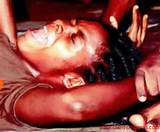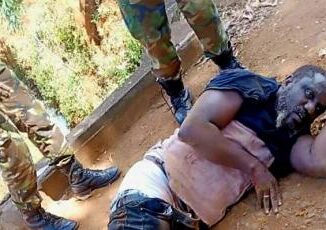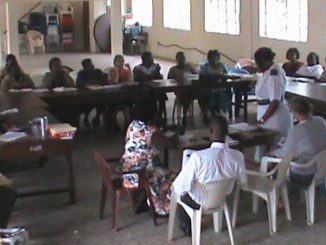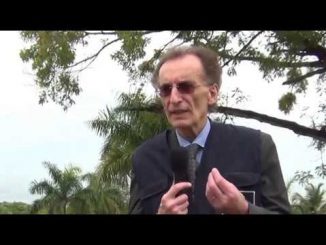
Sierra Leone has one of the highest rates of female genital mutilation (FGM) in the world, and yet little is known about the health consequences of the practice. The high prevalence rate of FGM and the proportion of medical complications show that FGM is a matter for public health concern in Sierra Leone. Girls who undergo FGM before 10 years of age seem to be more vulnerable to serious complications than those who are older at the time of FGM. It is important that health care personnel are aware of, and look for possible complications from FGM, and encourage girls and women to seek medical care for their problems.
Female genital mutilation (FGM) refers to procedures that intentionally alter or cause injury to the female genital organs for nonmedical reasons. Many reasons are given for why FGM occurs, the perceived reason being that it is a cultural and traditional practice. The reason for FGM has been linked to religious, obligatory rites, even though there is no written requirement for FGM in any of the holy books. Some communities believe that the reduction of a woman’s sexual drive is a virtue often associated with sexual morality. Through FGM, the clitoris is removed in the belief that this will ensure the woman’s “decent behavior.” As the practice is often linked with social acceptance, it is practiced as a social convention that carries its own rewards and punishments, the latter being a reason for continuing the practice.
Girls and their families might face peer pressure, rejection, or stigmatization if they do not participate in this practice, and may feel that the social benefits of the practice (identification, access to resources, and opportunities for marriage) outweigh the disadvantage of harm on the girl. The persistence of the practice is nevertheless propelled by interrelated sociocultural factors, these varying within regions, countries, and ethnic groups within the same country.
In some communities in Sierra Leone, FGM takes place as part of an initiation ceremony that is a recognized rite of passage for girls into women, recognizing that she has been correctly raised and is ready for marriage. In this context, girls are rewarded with celebrations, gifts, and public recognition.
In spite of the high prevalence of FGM in Sierra Leone, there is little knowledge on the negative health effects of the practice and possible implications for health care. The cultural complexity of the practice of FGM might explain why there is still a lack of research on FGM and related health complication in Sierra Leone. There have been reports on deaths attributed to FGM, e.g., from tetanus and infectious diseases. In Sierra Leone, however, it is difficult to determine the number of girls and women who die from FGM-related complications, as such deaths may be attributed to “spirits” instead. Excessive bleeding, delay in wound healing, and tenderness as the most common types of complications in FGM.
Community groups like Sisters United against Female Circumcision and Children’s Aid Society-Sierra Leone have been in the upfront fighting to end Female Genital Mutilation in Sierra Leone. FGM is generally done without anesthetic, and can have lifelong health consequences including chronic infection, severe pain during urination, menstruation, sexual intercourse, childbirth, and psychological trauma. No one knows how many girls die from FGM in Sierra Leone each year. The Children’s Aid Society-Sierra Leone and Sisters United against Female Circumcision has been working hard within their communities to eradicate this practice.
Both organizations have lunch several workshops, campaigns and events against the use of young children in performing the FGM. Many campaigns have led to the arrests of many of young activists, photographers and volunteers in Sierra Leone. The traditional leaders and the police authorities are using excessive force against community human right groups. The unlawful arrests of campaigners have put fear among most of our volunteers, photographers and staff. The use of excessive force, humiliation, unlawful detention and arbitrary arrests of volunteers, photographers and staff from community groups left them with no choice but to flee the country to look for protection overseas.
FGM remains a vote-winner in Sierra Leone. . But that has not dissuaded Olayinka Koso-Thomas, a gynaecologist in Sierra Leone, from campaigning against the practice for 40 years, ignoring death threats and angry protestors storming her clinic. Ms. Koso Thomas, who came to Sierra Leone from Nigeria, sees nothing wrong with such ‘bondo’ societies and their initiation ceremonies but, on medical grounds, she and a handful of other women’s rights campaigners like Children’s Aid Society-Sierra Leone and Sisters United against Female Circumcision want the circumcision ritual replaced by something less brutal and hazardous.
By-Mrs. Khadijah Bangura-Country Director-Children’s Aid Society -Sierra Leone- August 10 2015



